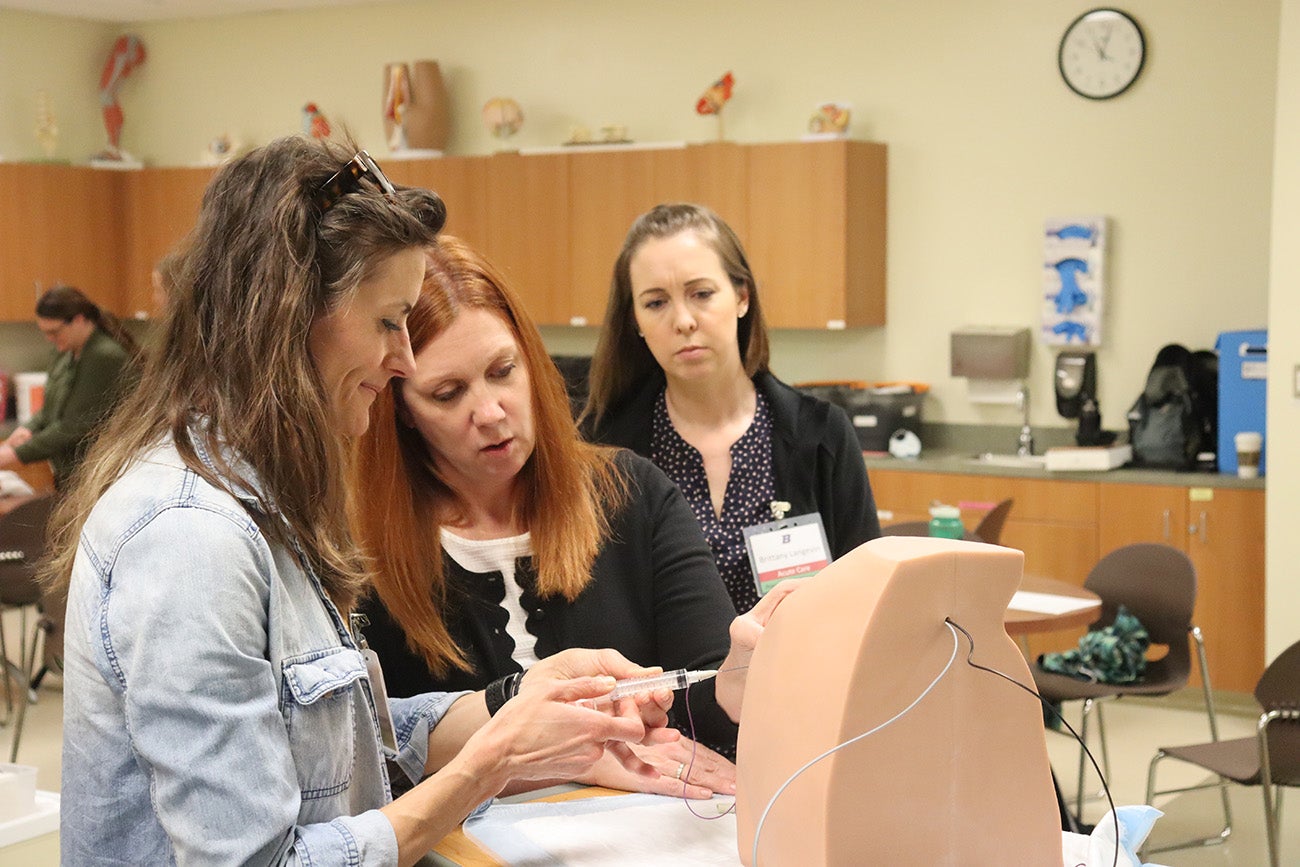The School of Nursing’s adult gerontology nurse practitioner professors live in a world of duality.
In order to maintain their credentials from the American Nurse Credentialing Center, nurse practitioners must complete a host of requirements on a regular basis. These include continuing education and working a certain number of clinical hours.
For faculty, these aren’t tasks they can check off in a short-term window, such as practicing a month or two over the summer. So every nurse practitioner professor is also an active clinician.
Bringing specialties into the curriculum
In addition to her own private practice, assistant professor Nicole Loos-Bartlett is the medical director of the Crisis Center of Southern Idaho in Twin Falls where she frequently works with opioid detox patients. She imparts a new level of empathy to her students as she teaches them about substance use disorder and the science of addiction.
Likewise, adjunct professor Michelle Hicks has been able to teach a more in-depth perspective on rheumatology and autoimmune diseases because she practices as a full-time rheumatology nurse practitioner treating patients with chronic pain and inflammation.

Since she works in a specialty field, Hicks is very open to letting students shadow her in her every day practice.
“[It is] very appropriate for specialized areas,” Hicks said, “To go for a couple of days just to see if that’s what you’re interested in.”
Another benefit for students of practicing clinicians is that their professors are aware of the modern challenges practitioners face; they actively experience them firsthand.
“Practicing as a nurse practitioner keeps you aware of what’s current,” said associate professor Molly Prengamen.
Prengamen works once a week at a rural public health department clinic. Her particular position makes her “very aware of all the factors that influence somebody’s ability to obtain their health goals,” she said. And she’s able to pass on that knowledge to her students.
Similarly, because associate professor Renee Walters works once a week at the Boise Veterans Affairs Medical Center, she gives her students relevant examples and anonymous patient scenarios from personal experience.
Sometimes easier said than done
Having differing job obligations isn’t always easy.
“Even though we have defined hours, in order to truly care for the patients, I can’t just pop in on Thursday,” Walters explained. “There might be things I have to manage on Friday, and then double check something on Monday. You end up kind of living in two worlds all the time.”
So it’s crucial they tackle their responsibilities one at a time.
“I have to be very organized,” Loos-Bartlett said. “That’s the challenge: maintaining balance between everything that has to occur.”
Hicks tends to her email and grades assignments a little bit each day, instead of saving it all for one intense grading period. Prengamen strives to keep time in her tight schedule for self-care, exercise and reflection.
100% worth it
No matter how taxing their responsibilities can become, each professor agrees: it is 100% worth it.
“I absolutely love being a nurse practitioner and providing nursing care,” Walters said. “To still have that and to foster it in others is a gift.”
At the end of the day, watching their students grow is what keeps these faculty practitioners going.
“I really get to see their progress and how they grow [from] being a nervous new clinician to really learning how to take care of people,” Hicks said.
“It’s nice to see that growth occur and know that our profession is in good hands going forward,” Prengamen said, “So when I open my eyes someday when I’m lying on a gurney, I’m not frightened,” she laughed.